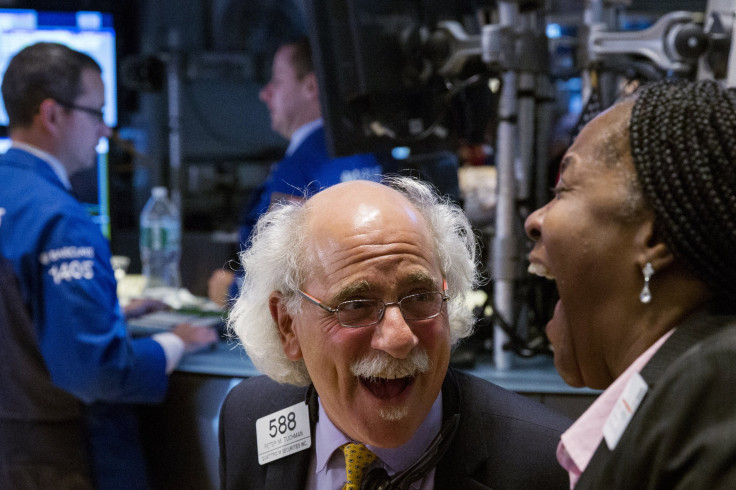Wall Street Bonuses: A Muted Year For Big Banks Doesn't Keep Bonuses From Inching Up

Financial markets might be challenging these days, but don’t expect to see traders sleeping on subway grates anytime soon. Wall Street employees pulled in $28.5 billion in bonuses in 2014, up 3 percent over the previous year.
According to a report from New York State Comptroller Thomas DiNapoli, securities industry workers saw their own bonuses rise 2 percent to an average $172,860 – or about three and a half times the median household income in New York City.
The better news, according to DiNapoli, was that the securities industry added jobs for the first time since 2011. Though the 2,300 new positions didn't come close to bringing financial firms to their pre-crisis heights, they signal a reversal from three years of decline.
“Wall Street now is 11 percent smaller in terms of headcount today than it was before the global financial crisis,” said DiNapoli. “But we did see, toward the end of 2014, an uptick.”
The good news for financiers comes amid mixed news for big banks as a whole. Profits at the six largest U.S. financial firms declined by 8.5 percent in 2014, while profits for broker-dealers – traders in stocks, bonds and other securities – totaled $16 billion, a 4.5 percent decline from 2013.
Last year was touch-and-go for Wall Street, as firms battled challenging markets and heightened regulatory hurdles. Though profits at some of them have remained high, revenue growth has been flat for U.S. banks, which have undergone a slow transformation in the post-crisis years.
At the same time, banks have responded to growing competition from private equity and hedge funds by boosting junior bankers’ salaries by up to 20 percent. Tight profit margins have only increased the pressure to fatten bonuses and sweeten perks to retain young talent.
The bonus figures might be misleading, however. “DiNapoli’s report creates the impression that overall compensation is rising, but the spread in compensation in financial services is very high,” said Michael Karp, CEO of Options Group, a Wall Street consulting and recruitment firm.
Since the comptroller compiles bonus totals from personal income tax receipts, cash can’t be distinguished from deferred compensation such as stock options. This year’s bonus tally includes payouts from previous years that are only now being redeemed.
Moreover, Karp argues that changes in hiring could have the effect of artificially inflating the bonus numbers. Banks brought on thousands of employees this year to negotiate shifting federal regulations, creating a boomlet in the compliance officer field.
These back-office employees bring in smaller bonuses than senior and midlevel managers, but they receive a greater share of their compensation in cash. A package that includes $100,000 in cash and $200,000 in deferred stock, for example, will appear smaller in the report than a simple $200,000 cash bonus. What looks like a bonus bump could turn out, in the long run, to be a slump.
Still, the sums collected in bonuses last year remain gargantuan relative to most Americans’ incomes, as advocates concerned with wealth inequality never fail to point out. The nonprofit Institute for Policy Studies noted in a report Wednesday that the nearly $30 billion bonus pool “far exceeds the amounts needed to lift the wages of all 2.9 million restaurant servers and bartenders, all 1.5 million home health and personal care aides, or all 2.2 million fast food preparation and serving workers up to $15 per hour.”
© Copyright IBTimes 2024. All rights reserved.












